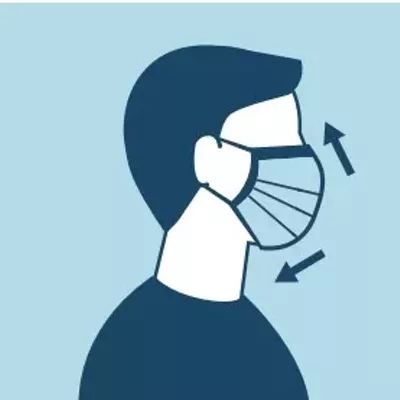"The scientific evidence is now indisputable: Secondhand smoke is not a mere annoyance," Carmona announced when he released a report, "The Health Consequences of Involuntary Exposure to Tobacco Smoke," in June. "It is a serious health hazard that can lead to disease and premature death in children and nonsmoking adults."
So it's hardly surprising to learn that Carmona is urging states to adopt strict smoke-free policies and laws.
Arizona voters will have a chance to do just that with Proposition 201, aka Smoke-Free Arizona, a ballot initiative that would ban smoking in most public places, including bars. Smokers would be allowed to light up on patios, as long as they were seated a "reasonable distance" from any door or window so that smoke couldn't enter the establishment.
Proposition 201 has been sponsored by the American Cancer Society, American Heart Association, American Lung Association and the Arizona Hospital and Healthcare Association, which have put up most of the $1.6 million the campaign had received as of Oct. 2.
But tobacco giant R.J. Reynolds isn't giving up without a fight. The company has provided more than $5.7 million--or about 99 percent of the money raised for the campaign--to offer voters an alternative in the form of Proposition 206, which they've dubbed the Arizona Non-Smoker Protection Act.
Proposition 206 is similar to Proposition 201, except it allows smoking in bars and restaurants that serve alcohol and doesn't include a 2-cent-per-pack tax for enforcement.
Troy Corder, spokesman for Smoke-Free Arizona, accuses the Prop 206 campaign of sowing "total confusion. It's really hard to cut through the clutter they've created."
Corder's concern about confusion appears to be backed up by poll results. A KAET-TV (Phoenix) survey taken last month showed both measures passing. Prop 201 had the support of 57 percent of the voters, while Prop 206 had the support of 55 percent.
Corder says the major difference between the two initiatives is that "we're sponsored by health groups you know and trust. Proposition 206 is sponsored by the tobacco industry."
Camilla Strongin, spokeswoman for the Arizona Non-Smoker Protection Act, says the campaign wouldn't be possible without the tobacco company's support.
"We're actually very proud that we have R.J. Reynolds' support," Strongin says. "Despite the fact that we're supported by hundreds and hundreds of small-business owners throughout Arizona, it would be difficult for them to mount the type of defense that they need to protect their rights."
And those rights are at the heart of the fight against Prop 201, which "basically ignores private-property rights, and while I certainly think that nonsmokers and children should be protected from secondhand smoke, it kind of leaves out a large segment of the population--business owners and those who choose to smoke," Strongin says. "We think there ought to be a reasonable accommodation for both sides. ... It's not a big stretch for most people to see smoking and drinking as activities that are often combined."
Corder says that the health hazard of secondhand smoke makes this more than a case of individual choice; a smoking ban is similar to health regulations related to food preparation.
"Secondhand smoke is a health concern," Corder says. "There is proof that it causes cancer in healthy nonsmokers. This is a public-health law."
But Strongin argues that's not a reasonable analogy.
"That's like saying, 'Well, should we allow restaurant owners to serve french fries?' Because we all know if you eat too many french fries, you're gonna get fat, and it's going to be bad for your health, and ultimately it's going lead to diabetes," Strongin says. "So maybe we should pass a law saying french fries shouldn't be on any menus and dictating to restaurant owners about what their customers can and can't do and can and can't eat. Smoking is still a legal activity in this country."
Strongin is particularly critical of Smoke-Free Arizona's 2-cent-per-pack tax, which would raise an estimated $4.7 million a year to enforce the smoking ban, according to the Joint Legislative Budget Committee.
"I think it's ridiculous waste of taxpayer dollars, regardless of whether those taxpayers happen to be smokers or not," Strongin says, echoing the refrain of her group's media campaign. She explains that the ban in Prop 206 will be enforced by local cops.
Corder says the tax was included because local officials asked the organizers of Smoke-Free Arizona to avoid giving them an unfunded mandate. The money would be distributed by the Arizona Department of Health Services, which would contract with local agencies to set up hotlines and hire enforcement agents. Leftover revenue would be diverted to the state's anti-smoking publicity campaigns.
The Arizona Non-Smoker Protection Act would also prevent local municipalities from setting more strict anti-smoking ordinances than state law, which would undo smoking restrictions in communities like Tempe and Prescott.
Strongin says allowing cities and towns to enact smoking bans creates "an unlevel playing field for businesses. We think that if we're going to have a smoking ban that protects nonsmokers and children, that's a reasonable choice. But we need to leave the business decisions to the business owners."
Strongin says Prop 206 is a better initiative, because it allows bar owners the freedom to run their businesses as they see fit.
"I think the anti-smoking side of Prop 201 wants to dictate exactly what we do, and we don't agree that is the Arizona way or the American way," Strongin says.
So does Strongin agree with Carmona's assessment about the health risks of secondhand smoke?
"I'm not a doctor, so I can't comment on that," Strongin says. "It's not my level of expertise."











